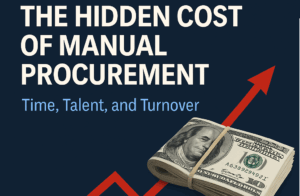With globalization, technological advancements, and increasing customer expectations, the demand for a skilled and adaptable supply chain workforce has never been greater. This is where supply chain talent development, focused on training and continuous learning, emerges as a strategic imperative for companies seeking a competitive edge.
The Changing Dynamics of Supply Chains
Supply chains have transformed from linear, predictable operations into dynamic, interconnected networks. Factors such as geopolitical uncertainties, digitalization, sustainability concerns, and the rise of e-commerce have introduced new complexities. These shifts demand a workforce that possesses a diverse skill set to navigate challenges and seize opportunities.
For instance, the COVID-19 pandemic exposed vulnerabilities in global supply chains, emphasizing the need for resilience and adaptability. According to a 2021 McKinsey report, 73% of supply chain executives encountered issues related to supplier reliability, and 85% struggled with insufficient digital tools to manage disruptions. These statistics highlight the necessity for well-trained professionals capable of mitigating risks and ensuring operational continuity.
The Importance of Talent Development
Investing in supply chain talent development goes beyond mere human resource management; it is a strategic imperative that directly influences an organization’s resilience, efficiency, and competitive advantage. In an era of rapid technological advancement, geopolitical instability, and shifting consumer expectations, organizations must prioritize continuous learning and professional growth within their supply chain teams.
Adaptability and Innovation
A well-trained supply chain team is better equipped to adapt to changing market conditions and embrace innovative solutions. Continuous learning fosters creativity and encourages employees to think critically, enabling them to develop and implement new processes, technologies, and strategies that enhance supply chain efficiency.
For instance, Amazon’s use of AI-driven logistics and predictive analytics has revolutionized inventory management, significantly reducing delivery times and improving customer satisfaction. According to McKinsey & Company, businesses that invest in digital supply chain technologies achieve up to a 30% improvement in service levels and a 40% reduction in supply chain costs. This underscores the importance of training employees in emerging technologies such as machine learning, blockchain, and Internet of Things (IoT) applications in logistics.
Risk Mitigation
Supply chain disruptions have become more frequent and severe, necessitating robust risk management capabilities within organizations. Effective talent development ensures employees are well-versed in risk assessment, mitigation strategies, and contingency planning.
The 2021 Gartner Supply Chain Risk Survey found that 79% of organizations experienced some form of supply chain disruption within the past year, with 45% citing pandemic-related disruptions as a major challenge. Companies such as Procter & Gamble have successfully navigated disruptions by employing well-trained supply chain professionals who utilize scenario planning and advanced analytics to mitigate risks. Training employees in crisis management and resilience-building strategies can significantly enhance an organization’s ability to withstand disruptions.
Cost Efficiency
Well-trained supply chain professionals are instrumental in identifying and capitalizing on cost-saving opportunities. By optimizing processes, reducing waste, and negotiating favorable terms with suppliers, organizations can achieve substantial financial savings.
A Deloitte study found that companies investing in advanced supply chain training reduced operational costs by an average of 15%. Toyota, a leader in lean supply chain management, attributes much of its cost efficiency to its highly skilled workforce trained in lean methodologies. By eliminating inefficiencies and adopting a culture of continuous improvement, Toyota has maintained its position as one of the most cost-effective automotive manufacturers globally.
Customer Satisfaction
A skilled supply chain team directly contributes to improved customer satisfaction by ensuring timely deliveries, accurate order fulfillment, and effective communication throughout the supply chain. The modern consumer expects seamless and rapid service, and companies that fail to meet these expectations risk losing market share.
According to a 2022 PwC report, 88% of consumers are willing to pay more for faster and more reliable delivery services, underscoring the direct impact of supply chain efficiency on brand loyalty. Companies such as Walmart have heavily invested in supply chain talent development, leveraging employee training programs to enhance last-mile delivery services and improve customer satisfaction rates.
Talent Retention and Attraction
Investing in employee development sends a strong message about an organization’s commitment to its workforce. Employees who receive continuous learning opportunities are more engaged, satisfied, and likely to remain with the company.
A LinkedIn Workplace Learning Report found that 94% of employees would stay at a company longer if it invested in their career development. Additionally, companies that prioritize professional growth attract top-tier talent, creating a robust pipeline of skilled professionals who drive business success. For example, UPS offers its employees tuition assistance through its “Earn & Learn” program, which has been instrumental in retaining skilled supply chain professionals and enhancing overall workforce competency.
Strategies for Supply Chain Talent Development
To effectively nurture supply chain talent, organizations can adopt several strategies:
Structured Training Programs
Implement structured training programs that cover essential supply chain concepts, industry best practices, and relevant technologies. These programs can range from onboarding sessions for new hires to advanced training for experienced professionals. Companies like DHL and UPS offer leadership development programs that equip employees with the skills needed for complex logistics operations.
Cross-Functional Exposure
Expose supply chain professionals to different functional areas within the organization. This helps broaden their perspective, enhances their understanding of the end-to-end supply chain, and promotes collaboration across departments. For instance, PepsiCo rotates employees across roles in procurement, logistics, and inventory management to build a versatile workforce capable of tackling diverse supply chain challenges.
Certifications and Professional Development
Encourage employees to pursue relevant certifications and engage in continuous professional development. Certifications from industry bodies, such as the Association for Supply Chain Management (ASCM) or the Chartered Institute of Procurement & Supply (CIPS), validate expertise and keep employees updated with the latest industry trends. Companies like Microsoft provide reimbursement programs for employees pursuing professional certifications to ensure their workforce remains competitive.
Mentorship and Coaching
Establish mentorship programs where experienced supply chain leaders guide and support junior team members. This facilitates knowledge transfer, accelerates skill development, and fosters a culture of learning. Companies like Toyota have implemented mentorship models to streamline knowledge sharing and enhance employee competencies. Similarly, Caterpillar has a structured mentorship program that pairs employees with senior leaders to help them gain hands-on insights into supply chain strategy and operations.
E-Learning Platforms and Resources
Leverage e-learning platforms and online resources to provide flexible and accessible training options. These platforms allow employees to learn at their own pace and access a wide range of topics, from supply chain analytics to sustainability practices. Coursera, Udemy, and LinkedIn Learning offer extensive courses tailored to supply chain professionals. Companies like Siemens have integrated digital learning platforms into their workforce development strategy to ensure continuous education for employees at all levels.
Collaboration with Academic Institutions
Forge partnerships with universities and educational institutions to create tailored supply chain programs that align with industry requirements. Internship opportunities and guest lectures from industry experts can provide students with practical insights and create a talent pipeline for the organization. For example, Walmart collaborates with universities to offer supply chain management degree programs that prepare students for careers in logistics and operations.
Performance Evaluation and Feedback
Incorporate performance evaluations that assess supply chain competencies and identify areas for improvement. Provide constructive feedback and development plans to guide employees in their professional growth. Companies like Procter & Gamble use performance analytics tools to track employees’ progress and tailor training programs to address skill gaps effectively.
Conclusion
In an era of constant change and disruption, investing in supply chain talent development through training and continuous learning is a strategic imperative for organizations aiming to stay competitive. A skilled and adaptable supply chain workforce not only enhances operational efficiency but also contributes to innovation, risk mitigation, and customer satisfaction. By implementing structured training programs, encouraging certifications, fostering mentorship, and leveraging digital resources, companies can build a resilient and capable supply chain team that propels them toward success in the dynamic global marketplace.
The Perfect Planner Team is here if you have any questions about Supply Chain Talent Development, and we offer a free consultation service. If you would like to connect with us on this article or any other topic, please message us on LinkedIn, shoot us an email at info@perfectplanner.io, visit our website at www.perfectplanner.io, or give us a call at 423.458.2979.
Author: Ed Danielov
Publication Date: March 20, 2025
© Copyright 2025 Perfect Planner LLC. All rights reserved.
References
- Deloitte. (2022). “Supply Chain Training and Cost Efficiency: A Strategic Approach.”
- Gartner. (2021). “Supply Chain Risk Survey.”
- LinkedIn Workplace Learning Report. (2022). “The Impact of Career Development on Employee Retention.”
- McKinsey & Company. (2021). “Building Supply Chain Resilience Post-Pandemic.”
- PwC. (2022). “Consumer Preferences and the Importance of Logistics.”






